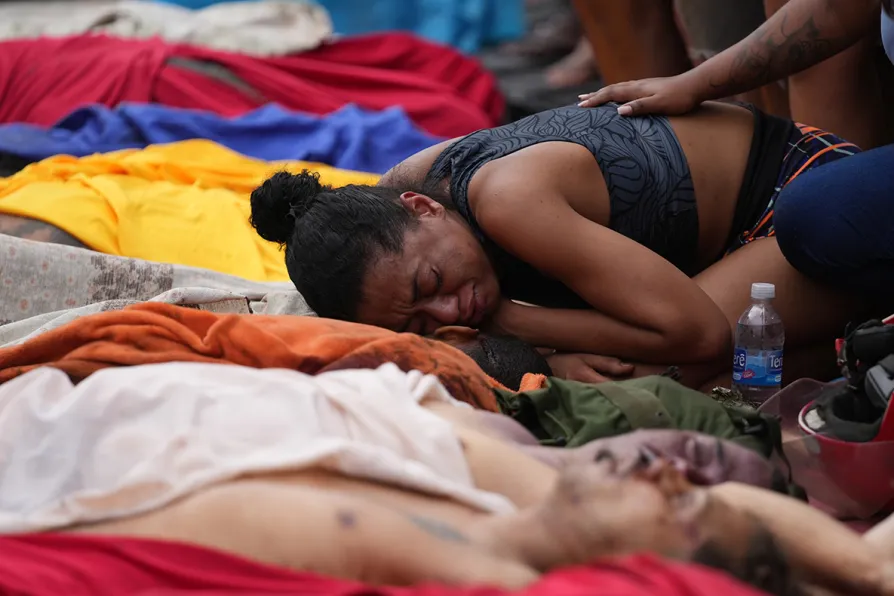
 A woman mourns over the bodies of people killed the day before during a police raid targeting the Comando Vermelho gang in the Complexo da Penha favela of Rio de Janeiro, Brazil, October 29, 2025
A woman mourns over the bodies of people killed the day before during a police raid targeting the Comando Vermelho gang in the Complexo da Penha favela of Rio de Janeiro, Brazil, October 29, 2025
A MASSIVE police operation against Brazil’s main drug-trafficking gang has left at least 64 people dead and prompted the United Nations to call for an urgent investigation.
About 2,500 police and soldiers carried out raids in two poor districts in the north of Rio de Janeiro on Tuesday, arresting 81 people and sparking shootouts that killed at least 60 suspects and four police, officials said.
“We are horrified by the ongoing police operation in favelas in Rio de Janeiro, reportedly already resulting in deaths of over 60 people, including four police officers,” the UN human rights office posted on X.
“This deadly operation furthers the trend of extreme lethal consequences of police operations in Brazil’s marginalised communities.
“We remind authorities of their obligations under international human rights law and urge prompt and effective investigations.”
Major police operations are frequent in Rio de Janeiro, particularly in the favelas – poor and densely populated areas often ruled by criminal gangs.
Tuesday’s operation, which included officers in helicopters and armoured vehicles, targeted the notorious Red Command in the sprawling favelas of Complexo de Alemao and Penha, police said.
Alongside the arrests, 93 rifles and more than half a ton of drugs were seized, according to the Rio de Janeiro state government, which claimed the people killed had “resisted police action.”
The operation has been one of the most violent in Brazil’s recent history, causing human rights organisations to call for investigations into the deaths.
Human Rights Watch Brazil director Cesar Munoz described Tuesday’s events as “a huge tragedy” and a “disaster.”
Luis Flavio Sapori, a sociologist and public safety expert at Pontifical Catholic University of Minas Gerais, argued that operations like this are inefficient because they rarely catch the masterminds, but rather target underlings who can be replaced.
“It’s not enough to go in, exchange gunfire and leave. There’s a lack of strategy in Rio de Janeiro’s public security policy,” he said.
The Marielle Franco Institute, a non-profit organisation founded by the murdered councillor’s family to continue her fight for the rights of people living in favelas, also expressed criticism, saying: “This is not a public safety policy. It’s a policy of extermination that makes the everyday life of black and poor people a Russian roulette.”










